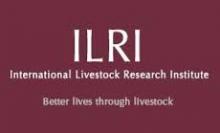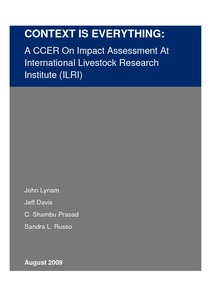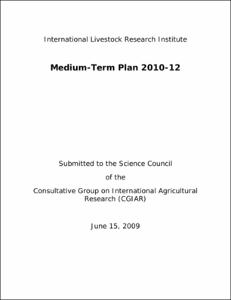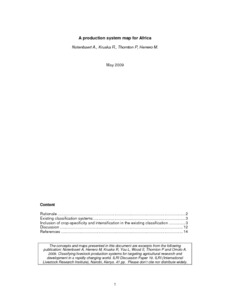Location
Vision, mission and strategy
ILRI's strategy 2013-2022 was approved in December 2012. It emerged from a wide processof consultation and engagement.
ILRI envisions... a world where all people have access to enough food and livelihood options to fulfil their potential.
ILRI’s mission is... to improve food and nutritional security and to reduce poverty in developing countries through research for efficient, safe and sustainable use of livestock—ensuring better lives through livestock.
ILRI’s three strategic objectives are:
- with partners, to develop, test, adapt and promote science-based practices that—being sustainable and scalable—achieve better lives through livestock.
- with partners,to provide compelling scientific evidence in ways that persuade decision-makers—from farms to boardrooms and parliaments—that smarter policies and bigger livestock investments can deliver significant socio-economic, health and environmental dividends to both poor nations and households.
- with partners,to increase capacity among ILRI’s key stakeholders to make better use of livestock science and investments for better lives through livestock.
This is ILRI’s second ten-year strategy. It incorporates a number of changes, many based on learning from the previous strategy (2000–2010, initially produced in 2000 and modified in 2002), an interim strategy (2011–2012) and an assessment of the external and internal environments in which the institute operates.
Members:
Resources
Displaying 721 - 725 of 1152Context is everything: A CCER on Impact Assessment at the International Livestock Research Institute (ILRI)
International Livestock Research Institute: medium-term plan 2010-12
This 2010-12 MTP presents relatively few adjustments to research plans from the previous MTP. One main cross-cutting change in the ILRI research program in 2010 will be to accelerate efforts to align research activities to the livestock development challenges presented. In preparation for that, ILRI is conducting a center-commissioned external review in 2009 looking at research into sustainable intensification of smallholder crop-livestock systems to provide a review of past activities and advice on this future focal area.
Mapping a better future: how spatial analysis can benefit wetlands and reduce poverty in Uganda
This publication presents study carried on Ugandan abundant natural wealth. Its varied wetlands, including grass swamps, mountain bogs, seasonal floodplains, and swamp forests, provide services and products worth hundreds of millions of dollars per year, making them a vital contributor to the national economy. Ugandans use wetlands-;often called the country';s ";granaries for water";-;to sustain their lives and livelihoods. They rely on them for water, construction material, and fuel, and use them for farming, fishing, and to graze livestock.
Kenyan pastoralist song
Traditionally sung by mothers, this song describes the importacne of cattle to a pastoralist community living in a semi-desert area.






